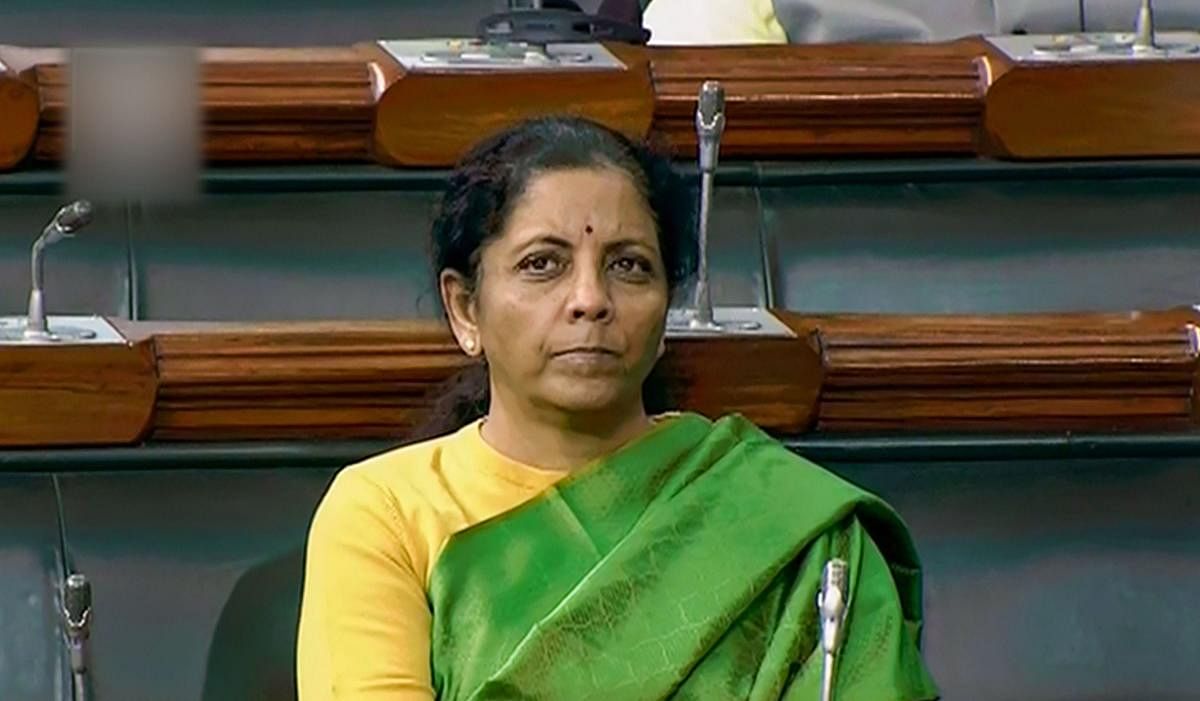
Finance Minister Nirmala Sitharaman on Wednesday said in the Lok Sabha that the government has taken several steps to check rising prices of onion and has initiated steps to improve technology for better storage of the kitchen staple.
The minister also dismissed the criticism that there was any fear among the investors by pointing out that FDI inflows have gone up to USD 209 billion during the first half of the current fiscal from USD 17 billion in the same period a year ago.
Replying to the debate on the first batch of Supplementary Demands for Grants, which was later passed by the Lok Sabha, she said the government has taken several steps to check rising prices of onion include a ban on exports, the imposition of stock limit, import and transfer of onion from surplus to deficit area.
Prices of onion in many places have crossed Rs 100 per kg because of less production.
"I must say, from 2014, I have also been part of some of the group of ministers, which monitored the ups and downs in onion markets. Sometimes when there was a surplus of crop we have also facilitated by giving support to those people who want to export it. I have overnight past orders for helping with 5-7 per cent assistance for exporting," she said.
Attributing shortage to low production, the minister said there are severe structural problems related to onions.
"One is we don't have scientifically advanced methods of storing...So that is one of the things, so we need to have a greater scientific storage facility for onions we have started working on it...then also to give better storage capacities within that region particularly around Lasalgaon," she said.
She, however, mentioned, "I belong to a family which does not eat onion and garlic."
The minister also said that due to the implementation of the direct benefit transfer scheme, the government has been able to save Rs 1.41 lakh crore in the last five years by plugging loopholes.
The government plugged all loopholes through DBT and "all dalals and middlemen have been eliminated from the system...How the DBT is making it to reach the actual workers and not dalal. No dalal no cheating. Money reaching to actual worker", she said.
Talking about the state of the economy, the Finance Minister said that the revenue collection has gone up as well as expenditure.
At the same time, capital expenditure has gone up by 13.7 per cent, she added.
With regard to infusion of capital in IDBI Bank, the minister said, the non-performing assets of the bank rose because of rampant loan largesse.
To improve the health of the bank, she said, the government has infused Rs 21,157 crore while LIC pumped in Rs 21,624 crore since 2015.
"So both put together have given Rs 42,781 crore to the IDBI Bank, only because of the rampant loans given during UPA regime," she said.
As a result the net NPA ratio from a high of 17.3 per cent in September of 2018, it has come down to 5.97 per cent in September 2019.
"So from 17.3 per cent, it has come down to 5.97 per cent, which is below the RBI's 6 per cent net NPA threshold. And therefore, under the prompt corrective action IDBI has come out, because of this infusion of cash done by the government and also by the LIC," she said.
The Lok Sabha later passed the first batch of Supplementary Demands for Grants allowing the government to spend an additional Rs 21,246.16 crore, including over Rs 8,820 crore in the newly formed Union Territories of Jammu and Kashmir, and Ladakh in the current fiscal ending March 2020.
The total cash outgo will be about Rs 19,000 crore. The government has sought Rs 8,820.62 crore as grants for Union territories of Jammu and Kashmir, and Ladakh in lieu of the erstwhile state's share of 14th Finance Commission Award.
Another Rs 4,557 crore will be infused in the IDBI Bank through recapitalisation bonds, while Rs 2,500 crore will go into recapitalisation of state-owned insurance companies.